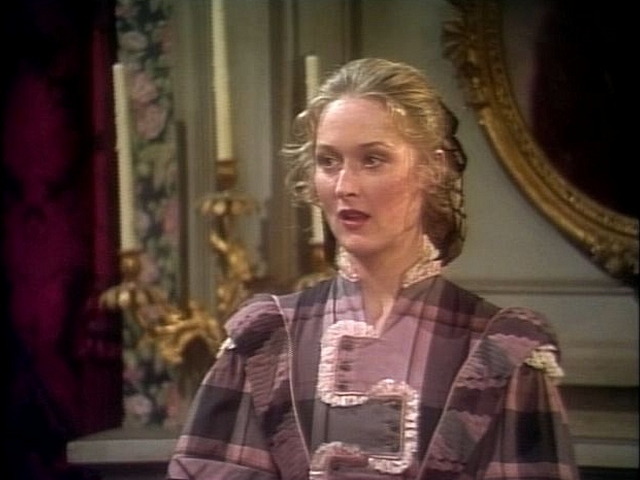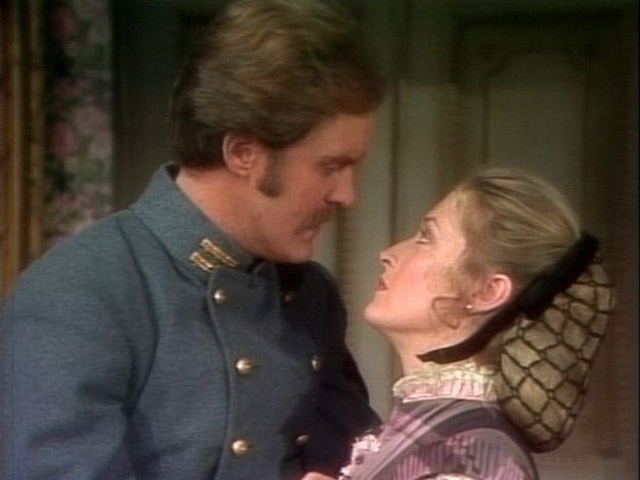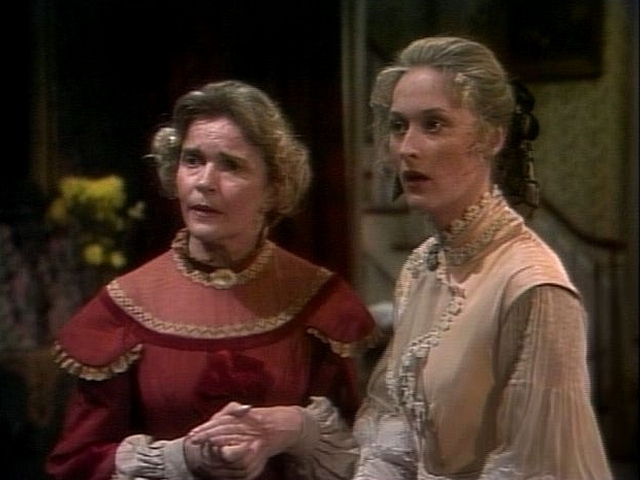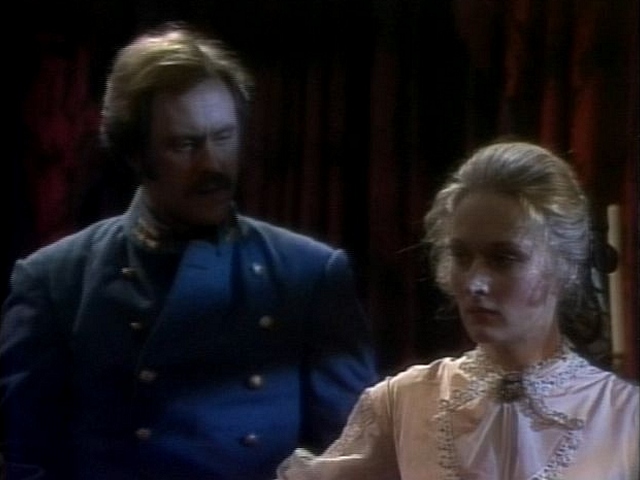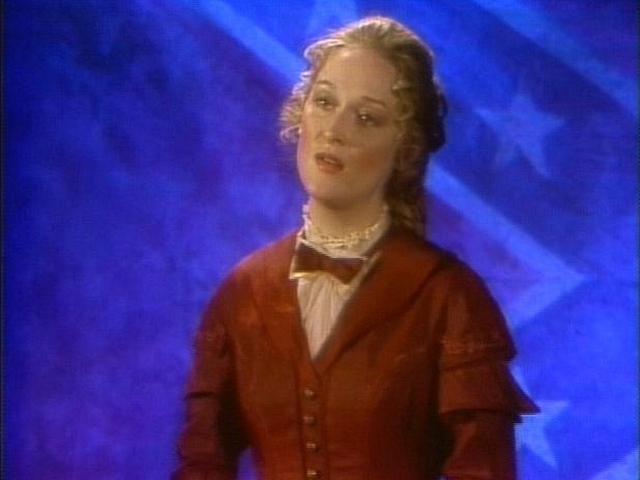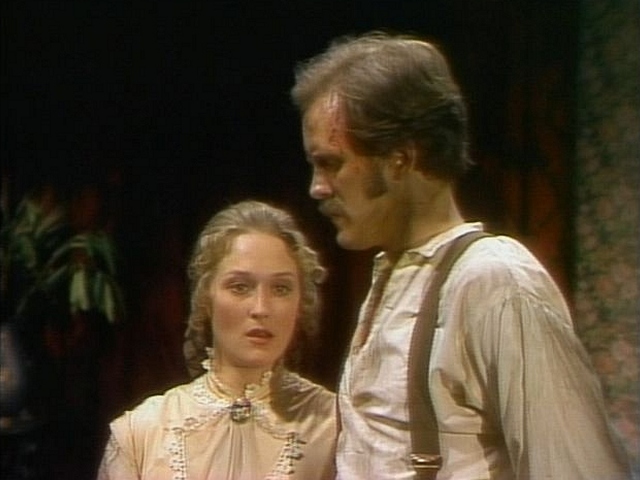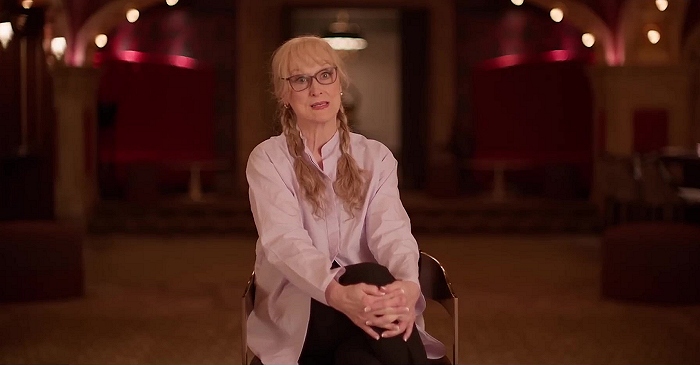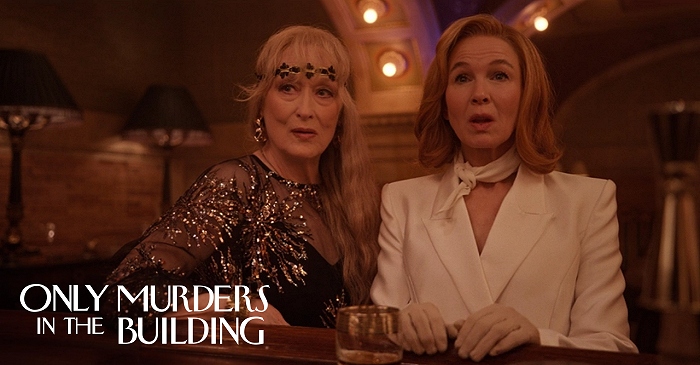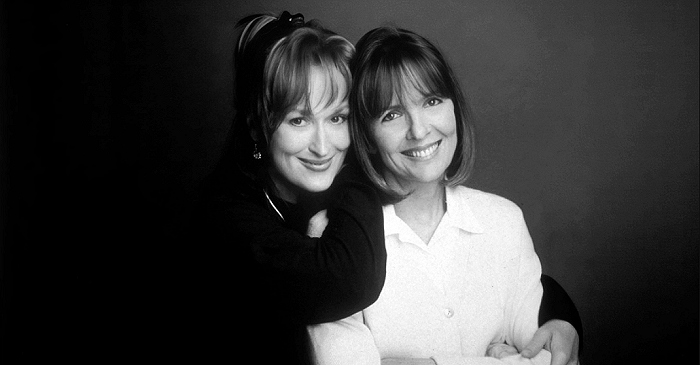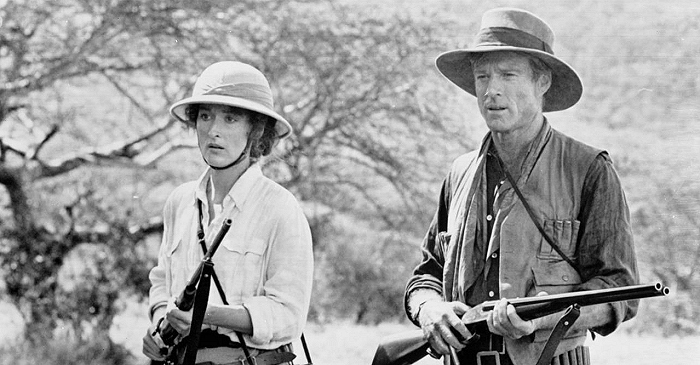|
Simply Streep is your premiere online resource on Meryl Streep's work on film, television and in the theatre - a career that has won her acclaim to be one of the world's greatest living actresses. Created in 1999, Simply Streep has built an extensive collection over the past 25 years to discover Miss Streep's body of work through thousands of photographs, articles and video clips. Enjoy your stay and check back soon.
|
Secret Service
January 12, 1977
· PBS Television
· 98 minutes
|


Before its 1976 revival by the Phoenix Theater, William Gillette’s “Secret Service” hadn’t had a Broadway production since 1915. As the New York Times reviewed its televised version, “another 60 years might pass safely without urgent demand for a second revival. The historical spy drama is an embarrassing reminder of how impossibly silly and melodramatic much of American theater was before Eugene O’Neill”. “Secret Service”, which became a successful acting vehicle for Gillette in the pivotal role of Captain Thorne, is set in the besieged Richmond, Va., of 1864. Thorne, a Yankee posing as a Confederate officer, is working on the “hazardous schemes” of the Union Army’s Secret Service. But also, in his plot-thickening way, he has fallen in love with Edith Varney, daughter of a Confederate general and an unregenerate Southern-belle stereotype. Benton Arrelsford, one of Edith’s rejected suitors, suspects Thorne of perfidity, but his mustache-twirling incompetence keeps the play plodding along for four tedious acts.
As the Times continues, The Phoenix company tries mightily to be fair to the play, to mount a genuine period piece without undue condescension or camp. But “Secret Service” is beyond the kindness of friends. Half the characters spend most of their time on convenient off-stage verandas, waiting for their entrance cues. The plot has more turns than a corps de ballet in frenzied heat. And the Southern characters resemble a pack of blithering idiots, gnashing their teeth when not batting their eyelashes. The Phoenix has added some period songs, which are played and sung nicely enough by the cast, but really do little more than prolong the agony of the evening. And the actors, dripping a range of drawls from southern New Jersey to upper Mississippi, are as straightforward as possible, though the play forces the, tone to a territory somewhere between “Mary Hartman” and “10 Nights in a Barroom.” John Lithgow. Meryl Streep, Marybeth Hurt and Don Scardino are particularly sympathetic. The production was directed by Daniel Freudenberger and Peter Levin.
“Secret Service” is Meryl Streep’s television debut with its PBS premiere on January 12.


